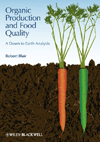Playing Whack-a-Tax
A proposed Maine food tax is the latest to pop up at the state level.
It’s like the boardwalk game “Whack-a-Mole.” States get into budget trouble, and lawmakers — seeking an easy target — think they’ve found one in a “snack tax.” Then, food industry and consumer groups go to work seeking to knock it down.
The latest occurred in Maine, where lawmakers have proposed reinstating a regressive tax on food products such as snack foods, including granola bars, fruit bars, breakfast bars, pretzels, popped popcorn, fruit rolls, bread sticks, processed fruit snacks, pastries, toaster pastries, croissants, cakes, pies and ready-to-eat puddings.
The Don’t Tax Food Coalition of Maine, of which the Snack Food Association is an active member, held a rally April 24 to oppose proposals that would impose the state’s sales tax on certain foods, as well as a wholesale tax on beverages. Maine potato growers also met with legislators and journalists as part of the effort to defeat the tax proposals. The coalition includes anti-hunger advocates, business owners and workers, farmers, working families and associations.
A similar tax was repealed in Maine in 2000, due, in part, to the nearly 50,000 voters who said they wanted to get rid of the unfair tax.
“Don’t be fooled,” says James Mitchell, Don’t Tax Food Coalition of Maine spokesperson. “This proposed food tax is nothing more than a regressive tax on Maine’s working families — those who can least afford to pay more for their groceries. Taxes like this one have proven to be bad public policy and discriminatory.”
The coalition pointed out that no other state in the nation has such a selective, arbitrary tax on foods and that every state that has experimented with such a tax in the last 15 years eventually has realized it to be unfair and a poor method of generating revenue, and repealed the tax.
A 2006 PriceWaterhouseCoopers report found that taxes such as the one proposed in Maine hits harder on low-income families. In 2004, households with incomes below $10,000 spent 11.9% of their income on foods that would be affected by the tax, compared to 1% for households with incomes greater than $70,000. The report also detailed the negative economic impact of a selective tax such as the one proposed in Maine on the economy as a whole, on the discretionary food industry in particular and on individual consumers.
Specific taxes on arbitrarily selected foods require complicated definitions, and the associated compliance costs impose losses on the economy and make such taxes a less efficient means of raising revenues, the study said. According to the coalition, the proposed tax would increase the sales tax burden on Maine families by $13 million per year, overall.






